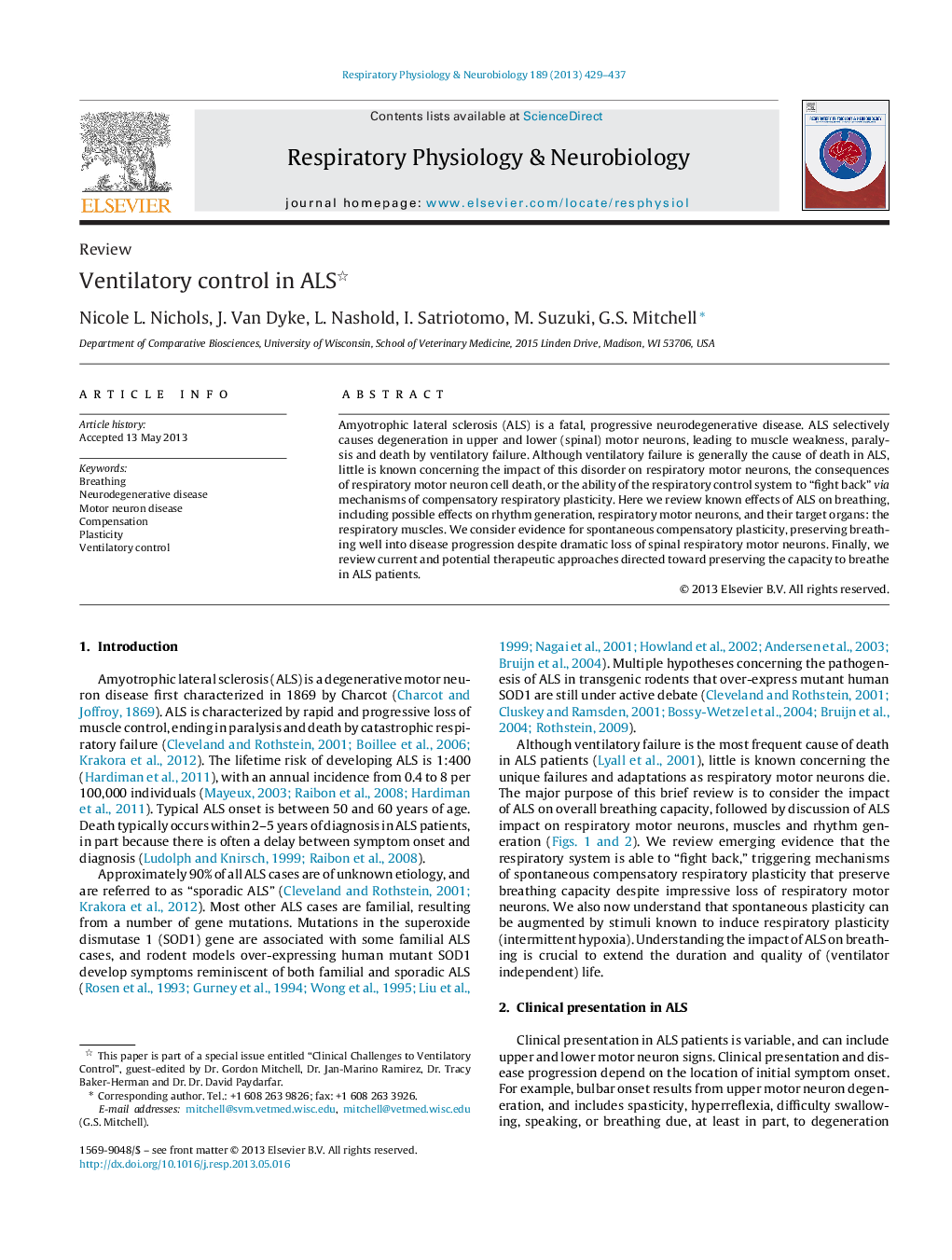| Article ID | Journal | Published Year | Pages | File Type |
|---|---|---|---|---|
| 5926028 | Respiratory Physiology & Neurobiology | 2013 | 9 Pages |
â¢Ventilatory failure is the main cause of death in ALS.â¢Few studies have been done to preserve breathing in ALS.â¢Therapeutic approaches for preservation of breathing in ALS are reviewed.
Amyotrophic lateral sclerosis (ALS) is a fatal, progressive neurodegenerative disease. ALS selectively causes degeneration in upper and lower (spinal) motor neurons, leading to muscle weakness, paralysis and death by ventilatory failure. Although ventilatory failure is generally the cause of death in ALS, little is known concerning the impact of this disorder on respiratory motor neurons, the consequences of respiratory motor neuron cell death, or the ability of the respiratory control system to “fight back” via mechanisms of compensatory respiratory plasticity. Here we review known effects of ALS on breathing, including possible effects on rhythm generation, respiratory motor neurons, and their target organs: the respiratory muscles. We consider evidence for spontaneous compensatory plasticity, preserving breathing well into disease progression despite dramatic loss of spinal respiratory motor neurons. Finally, we review current and potential therapeutic approaches directed toward preserving the capacity to breathe in ALS patients.
